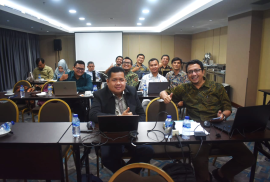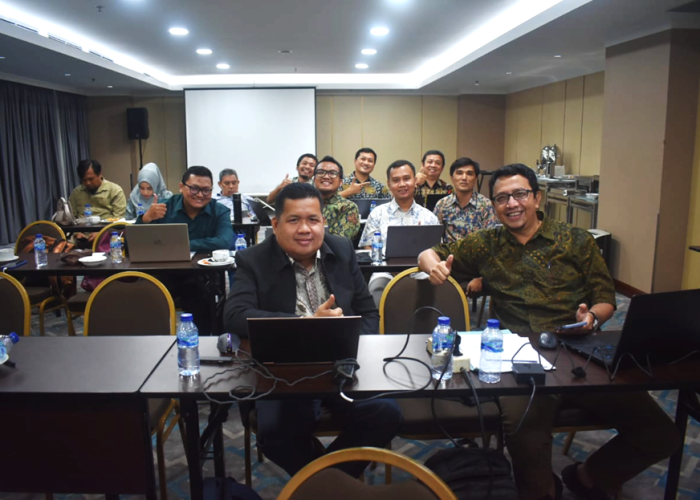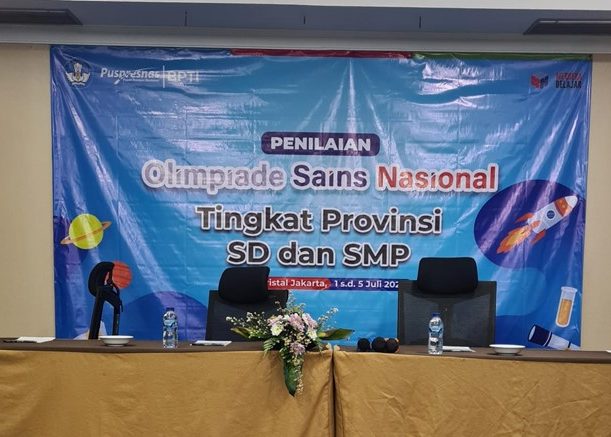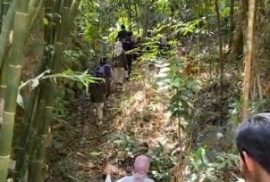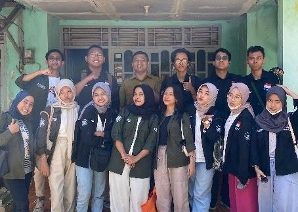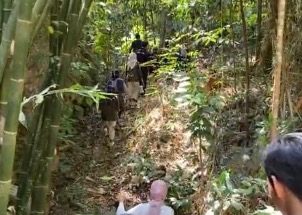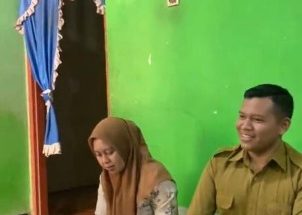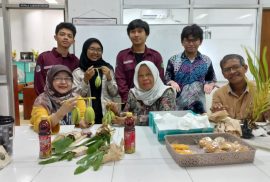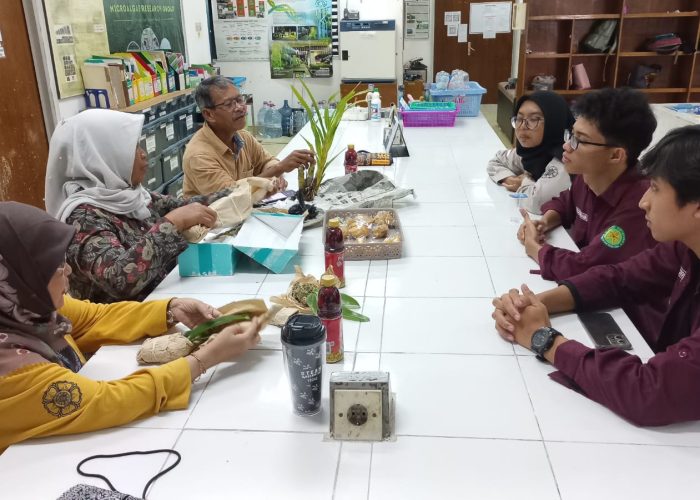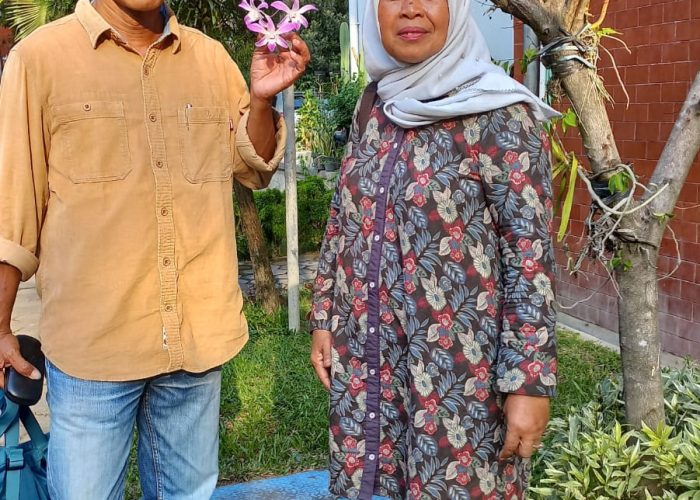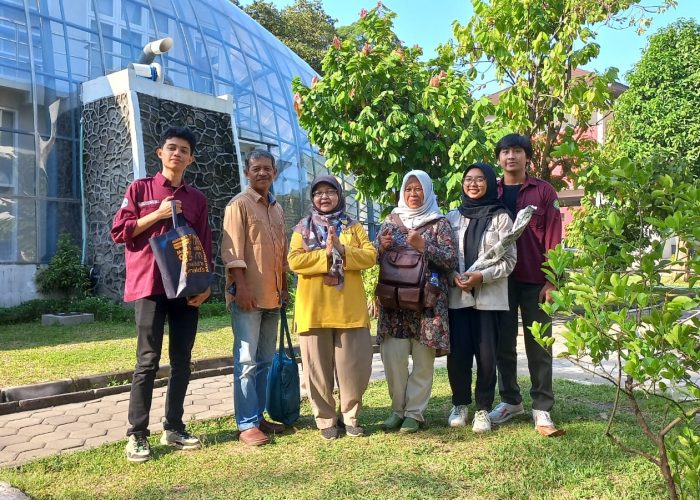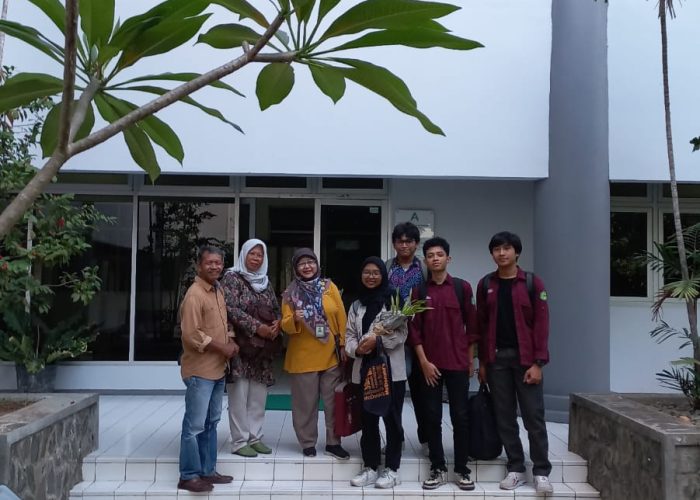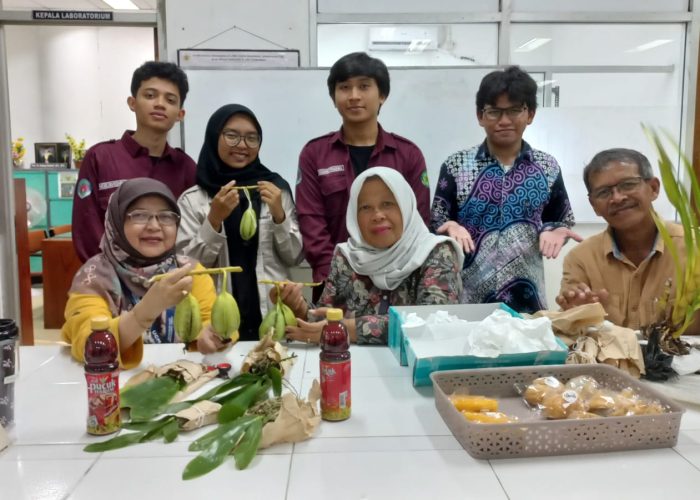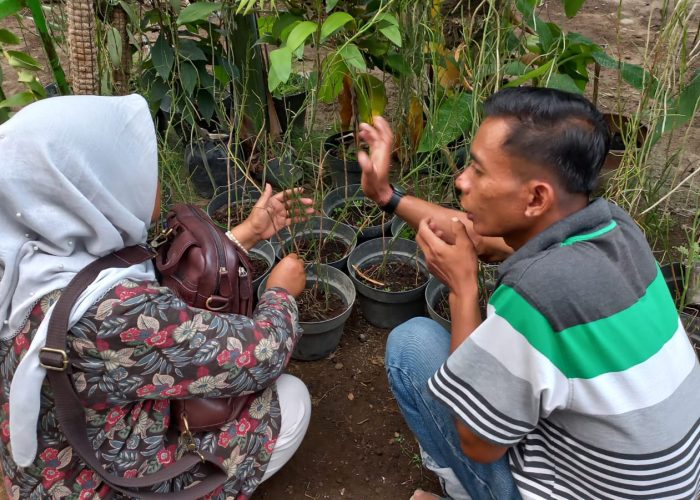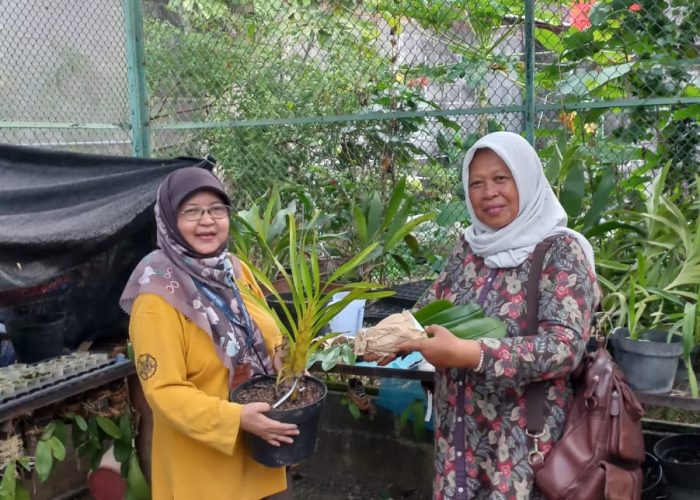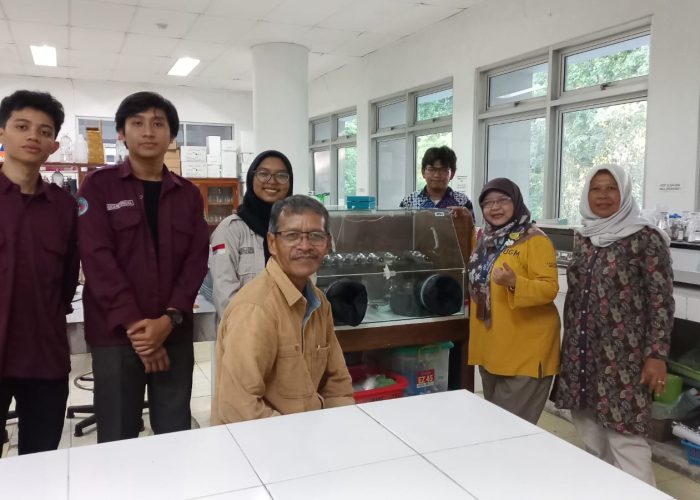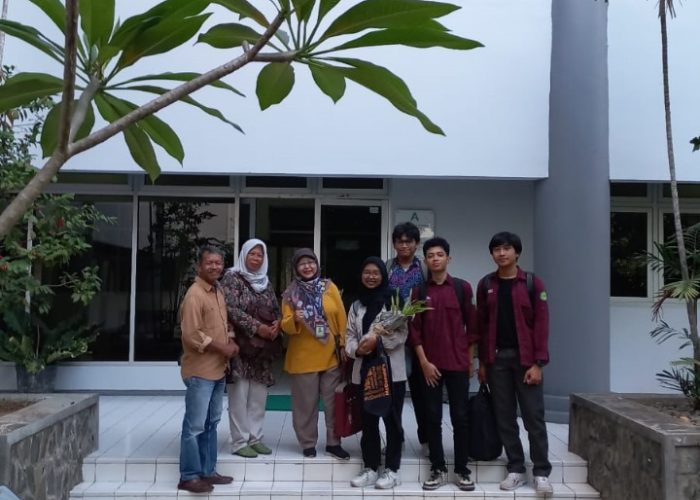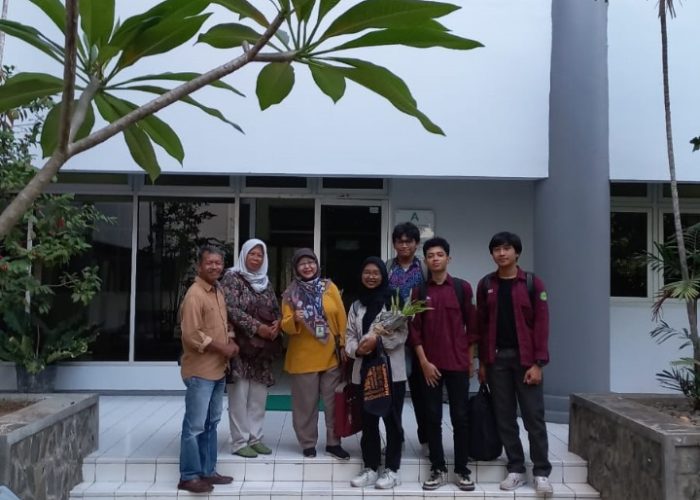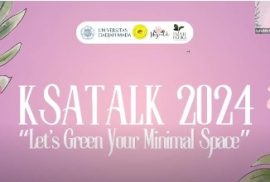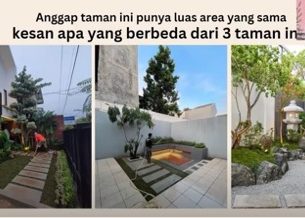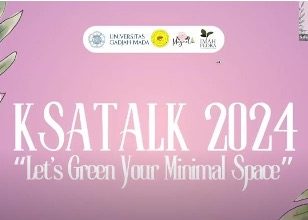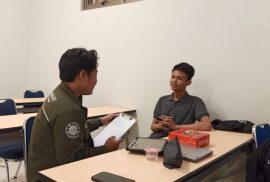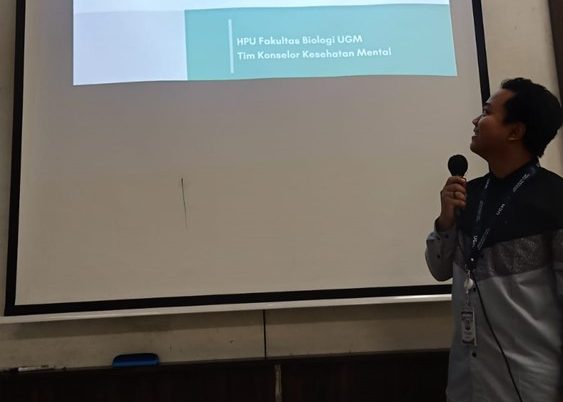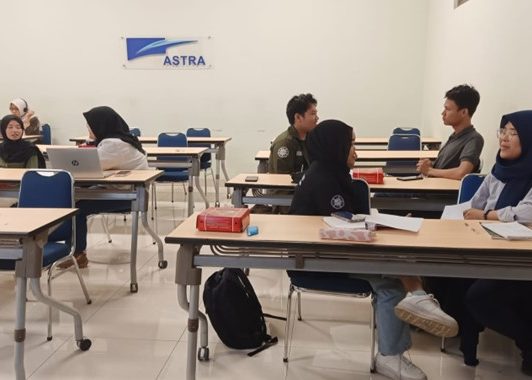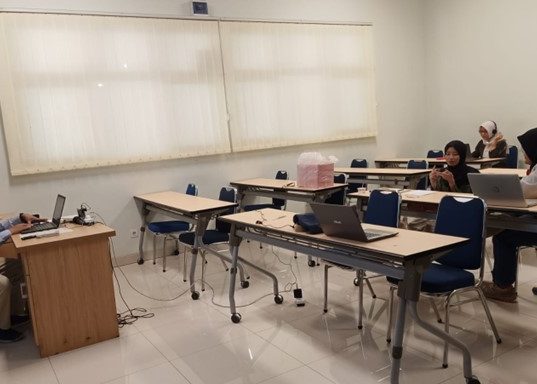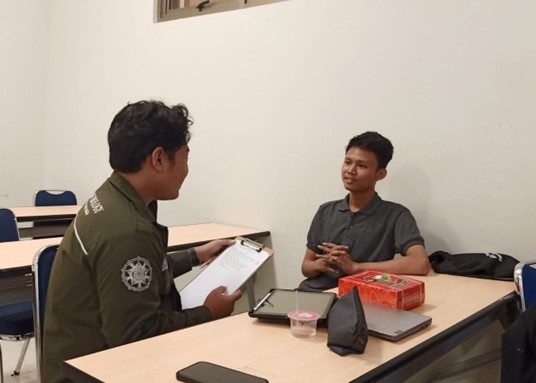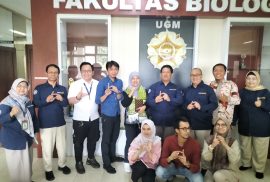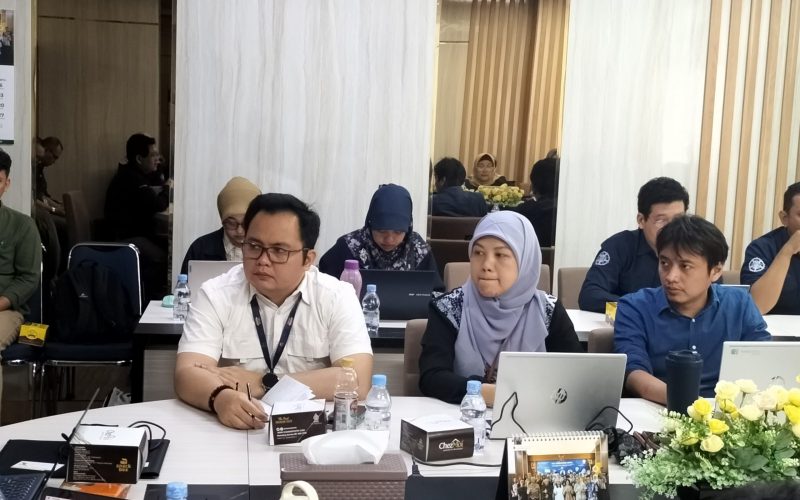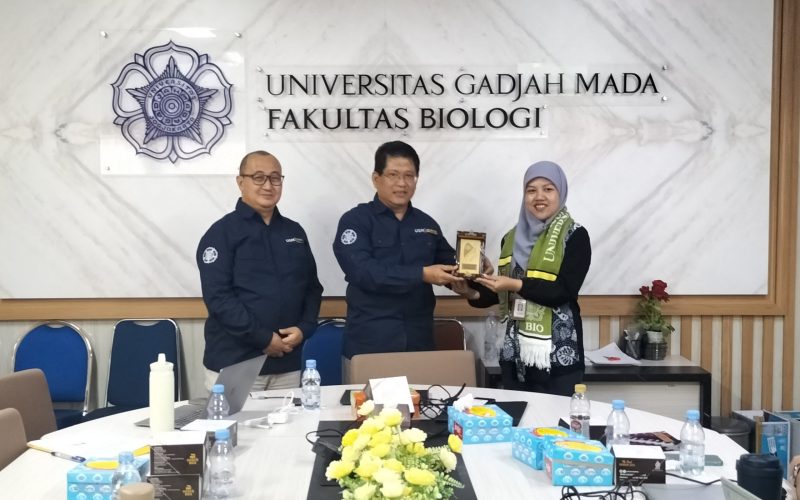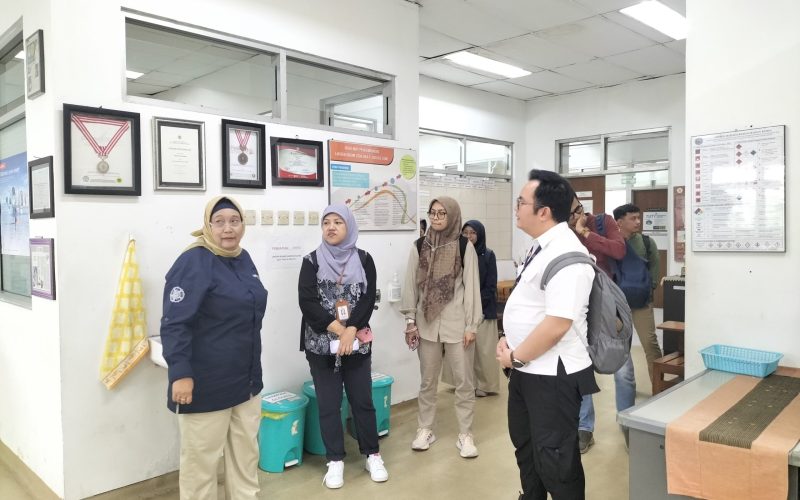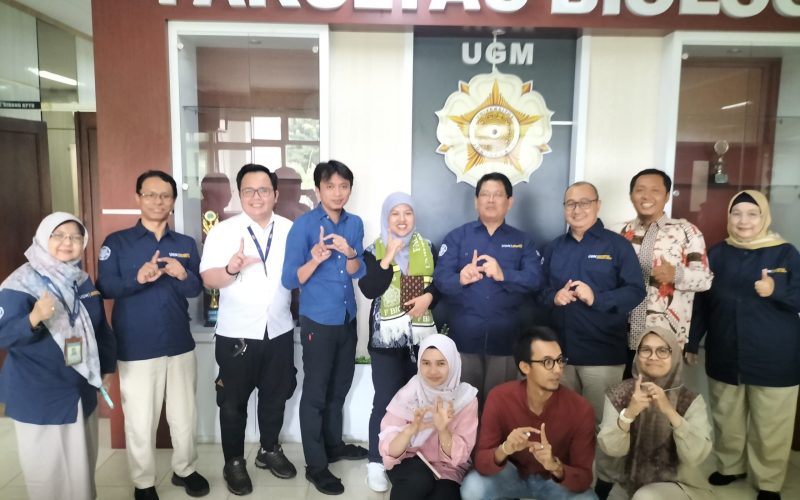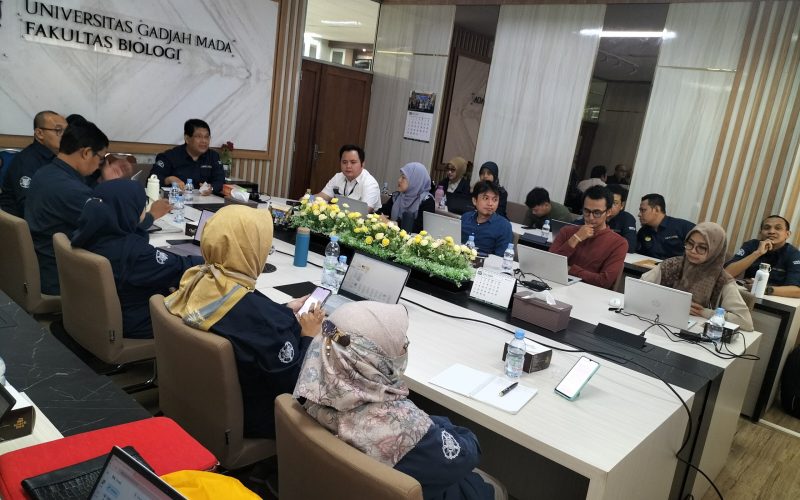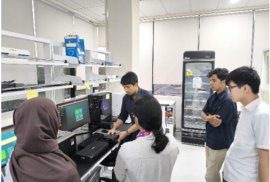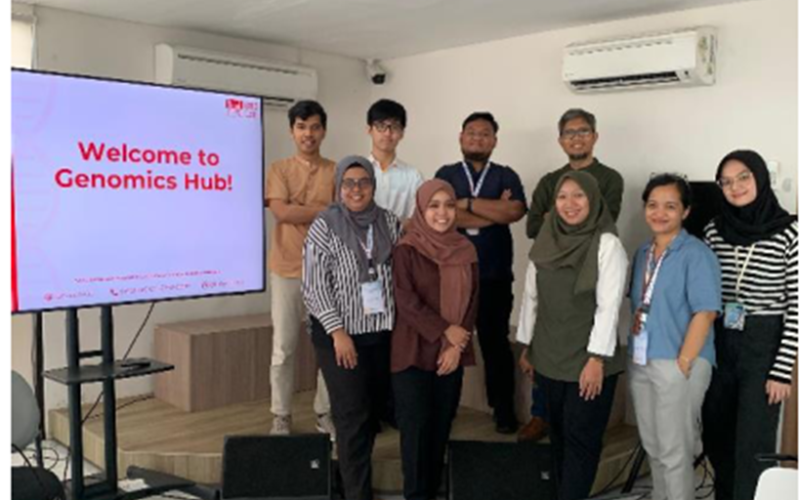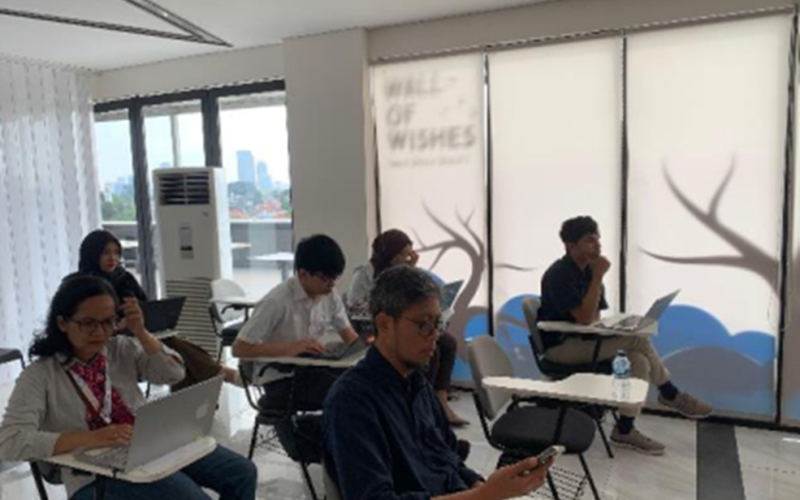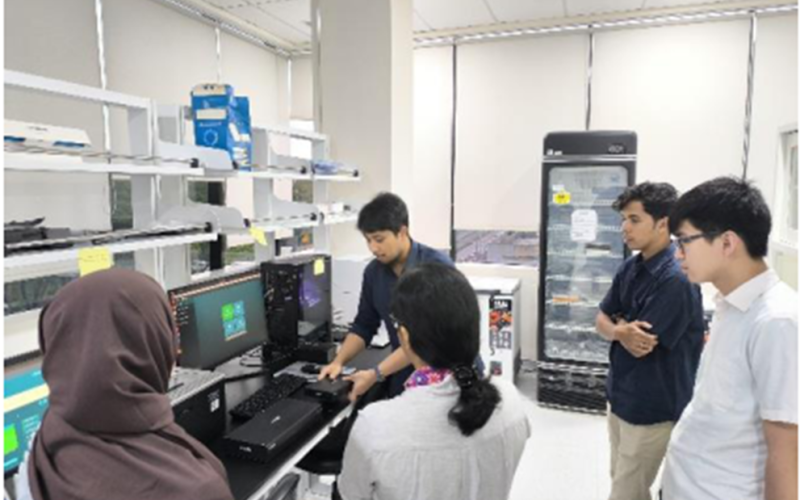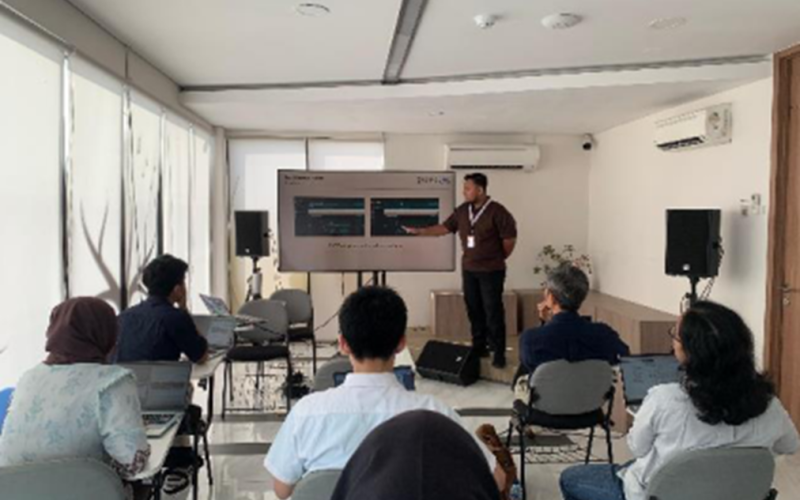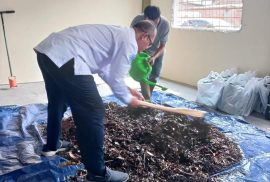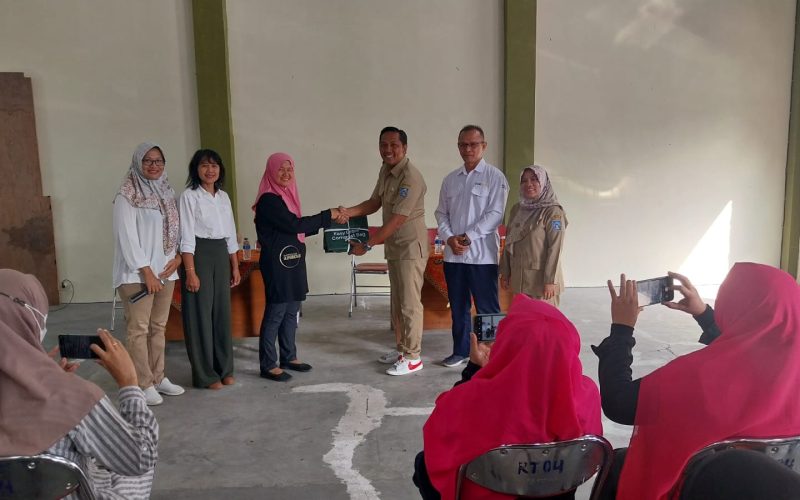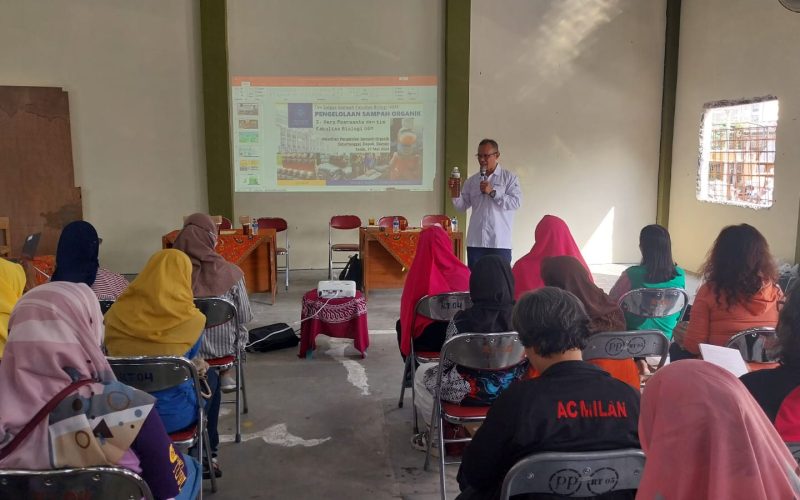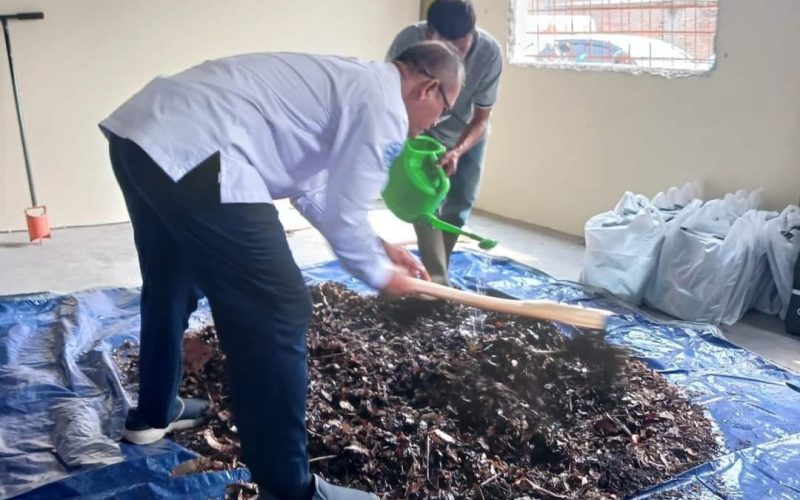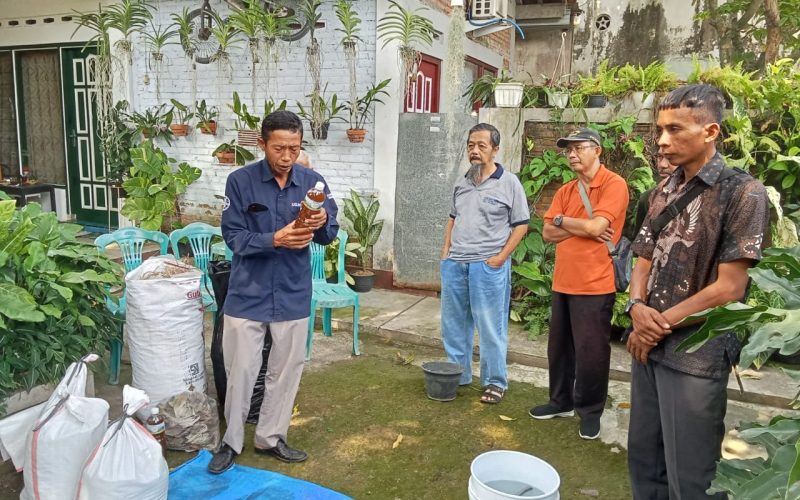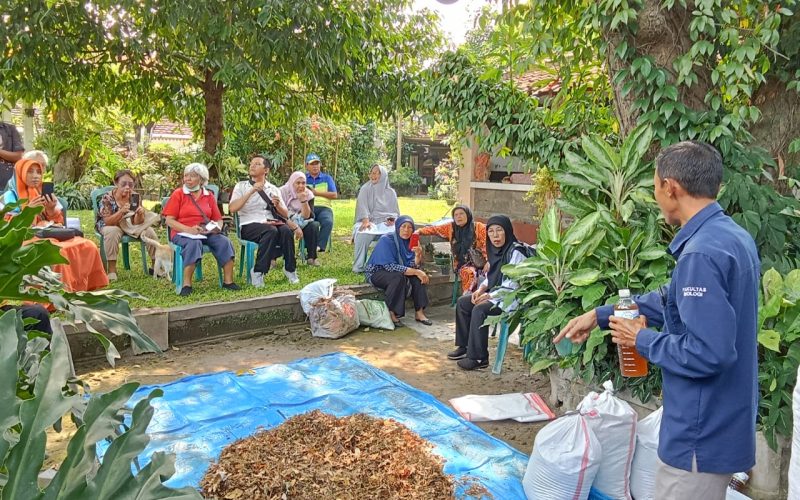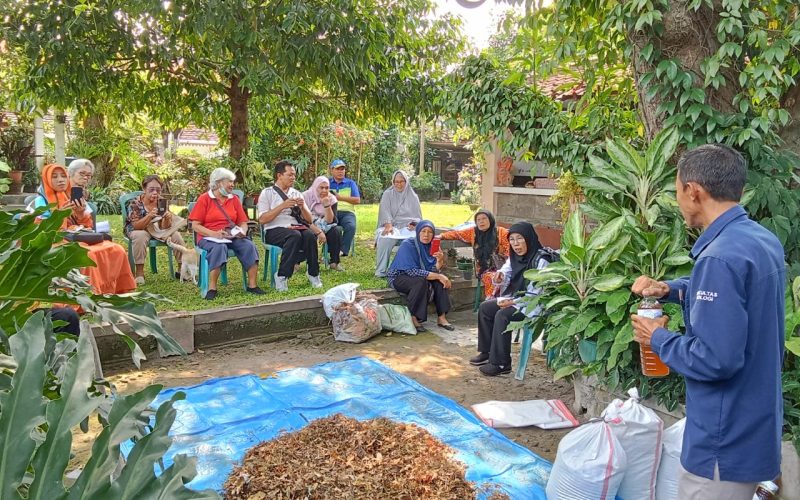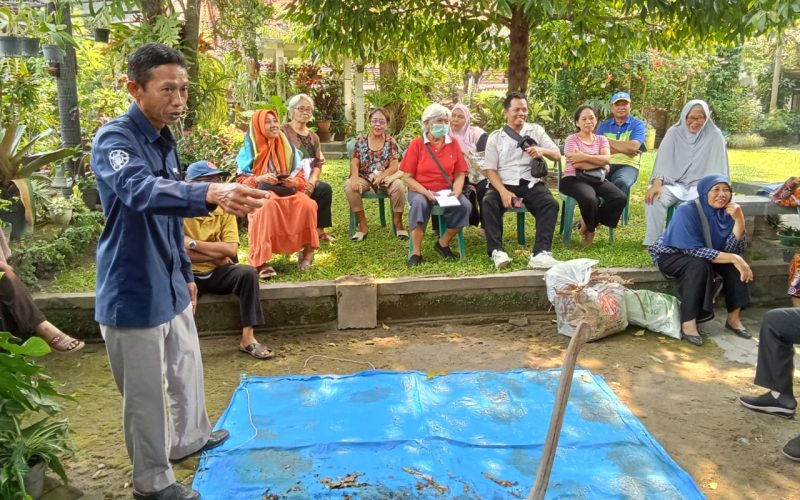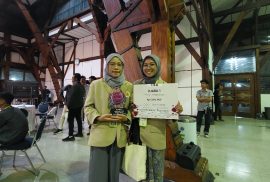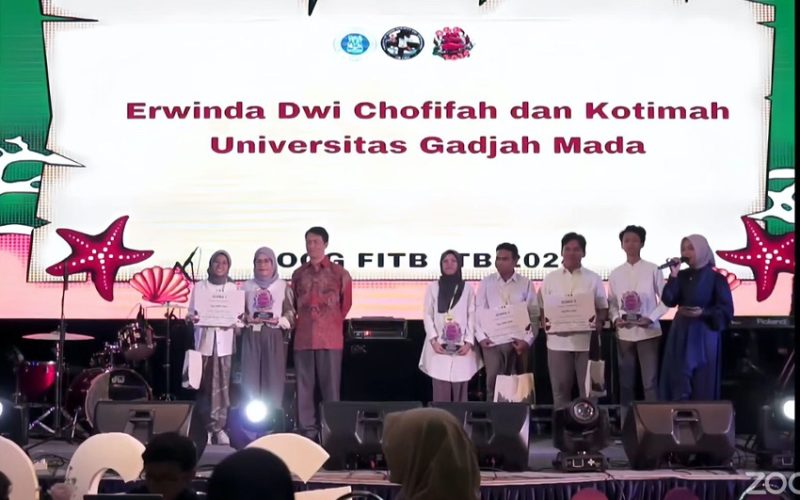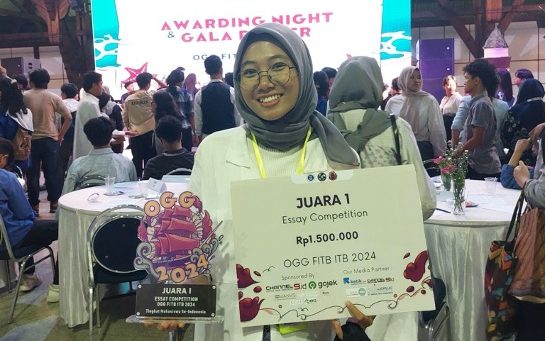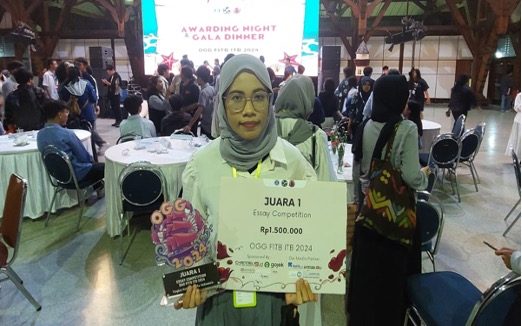Arsip:
News Release
**Jakarta, July 1-5, 2024** – Dr. Dwi Sendi Priyono, a lecturer from the Biology Department of Gadjah Mada University (UGM), has been invited to serve as a judge at the National Science Olympiad for Elementary and Middle School Levels (OSN-P). The event, organized by the Indonesian Talent Development Center, National Achievement Center, Secretariat General, Ministry of Education, Culture, Research, and Technology, took place from July 1 to July 5, 2024.
The National Science Olympiad at the provincial level (OSN-P) for elementary (SD/MI) and middle school (SMP/MTs) students was conducted using the Computer-Based National Assessment (ANBK) application. This innovative approach ensures a fair and efficient evaluation process, aligning with the Sustainable Development Goals (SDGs) of promoting quality basic education and fostering development.
Dr. Dwi Sendi Priyono was among the 50 judges from various universities and institutions across Indonesia. His expertise in biology and commitment to educational development made him a valuable addition to the judging panel. The judges were tasked with evaluating the performances of 2,061 participants, a challenging yet rewarding responsibility.
The OSN-P aims to identify and nurture young talents in science, providing them with opportunities to excel and contribute to the nation’s development. By involving experts like Dr. Priyono, the event ensures that the assessment process is rigorous and credible, promoting a culture of excellence in basic education.
Throughout the five-day event, participants demonstrated their knowledge and skills in various scientific disciplines. The use of the ANBK application facilitated a smooth and transparent evaluation process, allowing judges to focus on the participants’ performance without technical hindrances.
Dr. Priyono expressed his enthusiasm for being part of the OSN-P, highlighting the importance of such events in inspiring young minds. “It’s an honor to contribute to the development of our future scientists. These young talents are the backbone of our nation’s progress,” he said.
The involvement of university lecturers and professionals in the judging process underscores the commitment to maintaining high standards in educational assessments. This collaboration between educational institutions and the government is crucial for achieving the SDGs related to quality education and sustainable development.
The OSN-P not only provides a platform for students to showcase their abilities but also encourages them to pursue careers in science and technology. This aligns with the broader goal of fostering innovation and development in Indonesia.
As the event concluded, the organizers expressed their gratitude to all judges, participants, and supporting institutions. The success of the OSN-P is a testament to the collective effort in promoting quality education and nurturing the next generation of scientists.
On Monday, July 1, 2024, the Social Community Department of BEM Biology UGM conducted the Visiting Village 1 as part of the Social Community Department work program. The activity was attended by 13 committee members from the Social Community Department and took place in Geger Hamlet, including a visit to the hamlet head house and location survey. This event aimed to establish cooperation and build relationships with the community in Geger Hamlet.
The event started at 8:30 AM and was led by Alifa Tafrinjiyah, the field coordinator. The event included a Q&A session to identify the current issues in Geger Hamlet, as information for subsequent events, Visiting Village 2 and 3. Next, there was a location survey in preparation for the upcoming event. The activity closed with group documentation, followed by a cleanup.
This event is expected to foster good relationships by maintaining strong ties. Strong relationships could strengthen connections, provide mutual support, and help in various situations, also foster empathy, tolerance, and togetherness, ultimately creating a harmonious and peaceful environment. [Author: BEM]
On July 6, 2024, the Biotechnology Laboratory, together with the Biology Orchid Study Club (BiOSC) at the Faculty of Biology, UGM, received a visit from two guests from DPD PAI BABEL: Ir. Dian Rossana Anggraini, Vice Chairman/Executive Chairman of DPD PAI BABEL and winner of the Kalpataru Award in 2015, and Yuli Tulistianto, S.E., Secretary of DPD PAI BABEL. The visit was warmly welcomed by Prof. Dr. Endang Semiarti, M.S., M.Sc., Head of the Biotechnology Laboratory, Chairman of DPD PAI DIY, and the lecturer advisor for the BiOSC student study group.
During the visit, DPD PAI BABEL handed over four excellent and healthy orchid species plants of Bangka Belitung: Grammatophyllum speciosum and Phalaenopsis sumatrana, which are threatened in their natural habitats, to be cultivated at the Faculty of Biology, UGM, and orchid nurseries in DIY. They also handed ripe Grammatophyllum fruit to be cultured. Ir. Dian explained the natural conditions of these orchids in Bangka Belitung and how to cultivate them in the Greenhouse of the Faculty of Biology, UGM, ensuring the preservation of these Indonesian orchids. Additionally, a discussion was held about the diversity of orchid species in Bangka Belitung and their distribution based on habitat.
The next activity was planting the orchids in the Karanggayam Greenhouse, guided by Mr. Nanang, the greenhouse manager. This activity supports Sustainable Development Goals (SDGs) No.12 on responsible consumption and production and SDGs No. 17 on partnership for the goals. It is hoped that the conservation of Indonesian orchids will continue sustainably through collaboration between universities, PAI, and the community. (Ramadhan-BiOSC)
On Sunday, June 16, 2024, the Garden Architecture Study Group (KSAT) organized KSATalk, an online webinar with the theme Let’s Greening Your Minimal Space. The event aimed to educate participants on the steps and benefits of optimizing minimal space for home gardens. The event featured Anggia Sekar N as a speaker, a landscape architect, founder of Imah Flora and Tumpu Greenery. The event was attended by 61 participants from within and outside UGM.
KSATalk commenced with an opening and prayer led by Salsabila Nayla as MC, followed by speeches from Safina Suci Samara, chief organizer, and Anggi Nada Khoirul Ummah, Head of KSAT 2024. Proceeding to the main agenda, KSATalk guided by Endah Esthiningtyas consisted of a material presentation and Q&A session. The material covered the definition of minimal space, steps to create a garden from minimal space, and references to the garden concept. After the presentation, the event continued with a Q&A session where seven participants were allowed to ask questions. The event concluded with a documentation session and a closing prayer.
It is hoped that participants gain a deeper understanding of maximizing minimal spaces for home gardens and can effectively apply this knowledge to their own spaces. Additionally, it is expected that KSAT will continue to strengthen its roots to become a beneficial study group for the surrounding environment, academics, and the wider community.
On Friday (5/7), the Health Promoting University (HPU) team and Faculty Counselors Faculty of Biology UGM Counselors organized a training session for Buddy Counselors to prepare their skills for assisting new students in 2024. This year’s Buddy Counselor team is the second cohort following the establishment of the peer counselor team, called Buddy Counselors, by the HPU team and Faculty of Biology Counselors last year.
The Buddy Counselor 2024 team consists of 28 active students who received training and inaugurated on May 20, 2024. The training session was guided by Yudhistira Adi Perdana, M.Psi., a psychologist from the Faculty of Biology UGM . This activity is part of the HPU Faculty of Biology’s work program, chaired by Titin Fauziah, SE., MBA. The Buddy Counselors supported by the Faculty Psychologist and assisted by Faculty Counselors, including Dwi Umi Siswanti, S.Si., M.Sc., Dr. rer. nat. Abdul Rachman Siregar, M.Biotech., and Dr. Dwi Sendi Priyono, S.Si., M.Si.
The Buddy Counselors received training in active listening skills, life goal mapping, and practical sessions in active listening. This team will work alongside the PPSMB Faculty of Biology guides in assisting the 2024 new student cohort. The Buddy Counselor program is the first of its kind in the Faculty of Biology, aimed at helping new students adapt to their new environment, academic life, and all its intricacies. The team provides academic orientation and tracking the mental health of new students to minimize risks throughout their studies at the Faculty of Biology UGM.
“Active listening begins with our willingness to listen to the counselee’s story, paraphrasing, summarizing, clarifying, and providing support. We should focus on the counsellee,” explained Yudhis. “We hope that this new student assistance program becomes a tradition in our faculty, helping new students smoothly transition from high school to university life,” expressed Titin in her remarks. This assistance also facilitates the Faculty Counselors’ efforts in identifying mental health issues early and preparing measures to prevent self-harm and suicide.
Yogyakarta, 3 July 2024 – The Faculty of Biology, Universitas Gadjah Mada received a visit from the National Development Planning Agency (BAPPENAS) of the Republic of Indonesia consisting of the BAPPENAS Forestry Directorate Team. The discussions and field visits related to research and development of genetic resources for biodiversity in Indonesia. The visit was received in the KPTU Meeting Room, Faculty of Biology UGM, also attended by Prof. Dr. Budi Setiadi Daryono, M.Agr.Sc. as Dean of the Faculty of Biology, Dr. Eko Agus Suyono, M.Sc. as Vice Dean for Research, Community Service, Collaboration and Alumni Affairs, lecturers from various laboratories at the Faculty of Biology, as well as Head of the Agrotechnology Innovation Center UGM, Alan Soffan, S.P., M.Sc., Ph.D.
Prof. Budi as Dean of the Faculty of Biology welcomed the field visit from BAPPENAS, especially as support for the curation of genetic resources for biodiversity is very necessary for ecosystem sustainability. He, accompanied by Dr. Eko delivered a profile of the Faculty of Biology. He underlined the concern in the world of biology regarding biological curation through the establishment of a new study program at the Faculty of Biology, the Profession Program for Biodiversity Curator (PKKH).
Alan as Head of the Center for Agrotechnology Innovation UGM (PIAT) also welcomed BAPPENAS’ visit. He said that PIAT would also support efforts to manage Indonesia’s biodiversity in the future. BAPPENAS colleagues also plan to visit the PIAT UGM area in Berbah, Sleman, Yogyakarta.
Farida Yulistianingrum, S.Si., ME, MPP, from BAPPENAS, revealed that BAPPENAS is aware of the potential of Indonesia’s biodiversity and genetic resources. The BAPPENAS visit aims to explore data, information and views of experts/academics and agencies regarding gaps in the development of the genetic resource axis. These development efforts will then be continued with mapping and analysis of biodiversity in each region. Farida is also aware of the challenges related to research at the tertiary level, including regulations that are considered not support the implementation of research.
“Resource management is not yet connected, each is mostly kept at the level of individual university researchers,” said Prof. Budi. He also expressed the concerns that prompted the formation of the Indonesia Biodiversity Index (IBI) in 2019. IBI collaborates with the Indonesian Conservation Communication Forum (FKKI) and various Non-Government Organizations (NGOs) in Indonesia to collect and share biodiversity data. Prof. Budi emphasized that there is a lot of data produced by Indonesian researchers, but it is spread in the form of thesis, books, and so on. This data curation effort has been ongoing for four years, and by 2024 alone they have produced no less than 11,000 pieces of information on species status and trend data.
Dr. Miftahul Ilmi, who is under the Microbiology Laboratory of the Faculty of Biology, further added that the culture collection of various microbial genomes in Indonesia is still limited. The largest collection is currently managed by the Indonesian Culture Collection Laboratory (InaCC) of the National Research and Innovation Agency (BRIN), while other collections are managed by researchers at various universities in Indonesia. This culture is only 0.4% of the total culture collection in the world.
Dr. Eko, with his microalgae research focus under the Biotechnology Laboratory, also conveyed the urgency in curating these cultures, including the expensive costs of maintaining cultures including human resources who can manage cultures, as well as the absence of databases, especially bioprospection databases. According to him, this database is crucial for the country’s progress, especially the contribution to various industries such as pharmaceuticals, and so on.
BAPPENAS also recognizes the limitations of policies/regulations from central to regional which still focus on economic value. Proposals regarding incentive regulations for conservation efforts or biodiversity credits in the regions still need to be evaluated as support for biodiversity conservation. Unfortunately, the model for biodiversity credit focuses more on terrestrial areas and is limited to marine areas.
The next discussion continued on concerns regarding the management of biodiversity databases in various scientific fields; entomology, wildlife and various plants are the focus of research at the Faculty of Biology UGM. Efforts to manage genetic resources are considered to be an emergency concern so that efforts are needed to manage the Indonesian database index sustainably, including the proposed biodiversity index which is a regional performance achievement.
The field visit was followed by a visit to the Genetics and Breeding Laboratory of the Faculty of Biology UGM, as well as the Agrotechnology Innovation Center (PIAT) UGM.It is hoped that the discussion between BAPPENAS and the Faculty of Biology UGM will contribute to observation, development of biodiversity governance and related regulations, so that Indonesia can become more independent in managing its biodiversity.
Yogyakarta, July 1, 2024 – Two lecturers from the Faculty of Biology Universitas Gadjah Mada (UGM) participated in advanced training on the Next Generation Sequencing (NGS) platform organized by Genomic Solidaritas Indonesia (GSI). This three-day training covered theoretical and practical aspects of using the Oxford Nanopore Technologies (ONT) platform. Participating in this training is a part of the commitment to advancing bioinformatics research in Indonesia. The implementation of High-Performance Computing (HPC) to process large biological datasets aligns with UGM’s research goals, and this training equips researchers with the necessary skills to effectively utilize these advanced tools.
Day 1: Introduction to ONT Platform and Basic Bioinformatics
The first day of the training consisted of theory and practical sessions. The theory session introduced participants to the ONT platform, the latest NGS technology that uses electrical current through nanopore proteins. There was also a demonstration of using the minKNOW software for ONT and EPI2ME LABs for post-NGS data processing. The practical session introduced basic bioinformatics programming using bash, including file systems, post-NGS data reading, file management, software management using Mamba, and de novo alignment techniques.
Day 2: Advanced ONT Features and Data Processing
The second day continued with the theory session on the advantages of ONT over other platforms, particularly the Adaptive Sampling concept, which makes ONT flow cells more efficient and the data obtained more specific. The practical session included assembly, variant calling, annotation, and an introduction to Biopython, a Python package for bioinformatics data processing. The second day training concluded with a lab visit to observe the sequencing infrastructure at GSI Lab.
Day 3: Metagenomic Analysis and Final Project
The final day focused on practical sessions and the final project. Participants learned about 16s Metagenomic Analysis using EPI2ME Labs through the Command Line Interface (CLI). The training concluded with a final project, where participants processed ONT fastq (.fastq) files into bam (.bam) files for further analysis using R Studio or Python.
Importance of NGS Analysis in Supporting Biosecurity Topics to Achieve Food Security
Advancements in NGS tools have significantly enhanced research in life sciences, allowing for more specific and in-depth studies. Understanding the genetic material of organisms is crucial for comprehending their activities and life processes. This is evident in the rapid progress of precision medicine, which reveals individual uniqueness through genetic analysis.
In the PUAPT research program, the Faculty of Biology UGM has mandated biosecurity in land and water management within the Food Security working group. These tools are invaluable for studying the rhizosphere microbiome community, microbe-plant interactions, the impact of microbiomes on fertilizer and pesticide usage, and gene expression differences in food crops under specific land and water management treatments. NGS analysis plays a crucial role in supporting these efforts to achieve sustainable food security, in line with the Sustainable Development Goals (SDGs), particularly SDGs No.2 of zero hunger, achieving food security and improved nutrition, and SDGs No.13 related to combating climate change to support sustainable agriculture.
On Monday (27/5), the Organic Waste Management Task Force of the UGM Faculty of Biology provided training on organic fertilizer production for Residents of Caturtunggal, Sleman, Yogyakarta. This training was organized in response to the request of the Acting Head of Caturtunggal, Aminudin Aziz. The training participants were 30 members of the Caturtunggal Women’s Farmer Group. The Organic Waste Management Task Force, led by Soenarwan Hery Poerwanto, M.Kes., delivered the material and practical session on making compost with the addition of Bioferti 2023.
“This household waste composting training is part of the Caturtunggal Village government’s program,” said Aziz in his opening remarks. Caturtunggal Village has also been affected by the closure of the Piyungan Landfill, making household waste a pressing issue that needs to be addressed. “This training is a form of community service from the Faculty of Biology, which has the Bioferti 2023 formula to help accelerate the composting of organic materials,” said Hery during his presentation.
Bioferti 2023 is a starter product from the UGM Faculty of Biology that has been proven to degrade organic waste in about 7 to 14 days. The formula analysis results show that it contains 2.70% nitrogen (N), 0.62% phosphorus (P), and 68.3% potassium (K), meeting the standards for organic fertilizers. This formula is continuously being developed by the Organic Waste Management Task Force, which has a team of experts, Sukirno, S.Si., M.Sc., Ph.D., and Dwi Umi Siswanti, S.Si., M.Sc.
The organic fertilizer training program in Caturtunggal Village, Sleman Regency, Yogyakarta, is an embodiment of SDGs 3 (Good Health and Well Being) and SDGs 11 (Sustainable Cities and Communities). “We will continue to contribute to the residents of Yogyakarta in addressing organic waste,” Hery concluded the training.
On Wednesday (22/5), the Waste Management Task Force from the Faculty of Biology, UGM, conducted training on organic waste management for residents of Patehan Village, Kraton, Yogyakarta. The training was guided by Harjito and Nanang, who were directly supervised by the Task Force Chairman, Soenarwan Hery Poerwanto, M.Kes., and attended by 15 people, led by Mrs. Sri Marpinjun.
This training was a response to a request letter from the residents of Patehan Village. “We have tried composting with various methods, but there are still many challenges that weaken the residents’ enthusiasm,” said Sri, explaining the reason for the training request. “The long decomposition time in our densely populated housing creates problems,” Sri added. The Waste Management Task Force from the Faculty of Biology, UGM, has a formula that can accelerate composting, namely Bioferti 2023. Composting with the Bioferti 2023 probiotic formula from the Faculty of Biology, UGM has proven capable of degrading organic waste in about 7-14 days, with organic fertilizer content of N (2.70%), P (0.62%), and K (68.3%), which meets organic fertilizer standards.
The mentoring program of the Organic Waste Management Task Force in Patehan Village, Kraton District, Yogyakarta, is one of the efforts to achieve SDGs 3 (Good Health and Well-Being) and SDGs 11 (Sustainable Cities and Communities). “We hope that the residents of Patehan Village will carry out organic waste composting independently, thereby reducing the burden of waste management and even becoming an example for residents in other villages in Yogyakarta,” said Hery, concluding the training (dus).
Over the past decade, the Textile and Textile Products (TPT) industry in Indonesia has risen sharply alongside the increasing demand for clothing and lifestyle needs. However, the textile industry still relies on conventional methods that produce hazardous waste, especially from the dyeing process, which is the most significant contributor to environmental waste. Moreover, the current management of Wastewater Treatment Plants (IPAL) has not effectively handled the waste produced.
Driven by these concerns, Erwinda Dwi Chofifah and Kotimah, students from the Faculty of Biology, class of 2022, initiated a solution focusing on the upstream production process of textiles by creating an eco-friendly biomaterial based on bacterial cellulose with the ability to produce color pigments (self-pigmented biotextile). Under the guidance of Tyas Ikhsan Hikmawan, S.Si., M.S., Ph.D., this innovation, named I-CHERA, was introduced at the essay competition of the Geography and Geoscience Olympiad (OGG) organized by the Faculty of Earth Sciences and Technology (FITB) at the Bandung Institute of Technology (ITB).
After passing a series of administrative and document selections, I-CHERA made it into the top 10 best works and had the opportunity to be presented in person on June 21-23, 2024, at ITB. Targeting the sub-theme “Green Industrial Revolution through Sustainable Industrialization Practices,” I-CHERA outperformed other projects proposed by hundreds of student teams from various universities across Indonesia and won 1st place. Erwinda and Kotimah hope this innovation will help Indonesia realize a green industrial revolution in the future.

